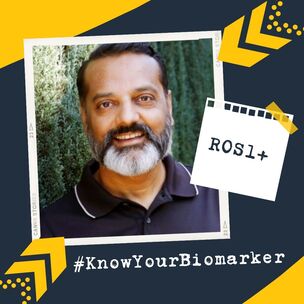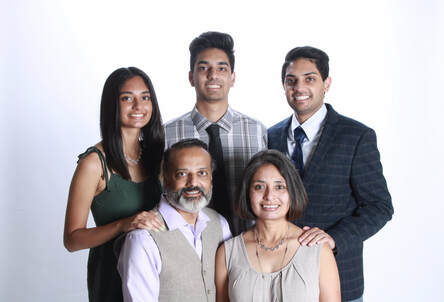|
When I was diagnosed 8 years ago with non-small cell lung cancer (NSCLC), I was told I had 6 months to live. It was the worst time of my life, and I wallowed in misery for nearly a week before I decided I needed to take action. I turned to the internet, which at first did nothing to alleviate my misery. But then I stumbled upon the patient advocacy organization LUNGevity and made a phone call that changed the trajectory of my entire diagnosis. That one call -- and the connections and information that came out of it -- are the reason I’m alive today. Finding Support through LUNGevity I was able to talk to a real person, who comforted and reassured me. She helped me find a great lung oncologist in my area. She also connected me to a LifeLine mentor, a lung cancer survivor who had been through exactly what I was going through. My mentor, Matt, had been living and breathing with the disease for 4 years when we were connected. He counseled me emotionally and psychologically, helping me to work through the emotions that come with a diagnosis like this. He told me, “I know you’re upset, but you need to work through those emotions because you have a huge war in front of you. There will be thousands of battles in that war, and you need to fight each battle to make it to the next one and ultimately make it to another year. Look at me: I’ve been stage IV for four years and I continue to battle.” For the first time since my diagnosis, I felt a tremendous amount of hope. If he could survive with such advanced cancer for so long, so could I. The Importance of Biomarker Testing Matt was the one who told me about biomarker testing and that there may be more individualized treatment options beyond the one-size-fits-all chemotherapy that has been the standard of care for so long. He explained that a “biomarker” refers to proteins, mutated genes, and other molecules found in tumors that affect how cancer cells grow. A biomarker test requires a biopsy, or tissue sample of the tumor, to look for these biomarkers that trigger cells to grow and multiply abnormally. If your cancer has a known biomarker, there may be a way to specifically target your cancer that is generally more effective than chemotherapy or radiation, and likely has fewer side effects. After enduring three rounds of chemo for tumors in my brain and experiencing the intense, debilitating side effects first hand, I can definitively say that less severe side effects are just as important as the improved survival. With chemo, I suffered nausea, headaches, dizziness, serious constipation, altered mental state; it was killing me. By the time I made it to the fourth round of chemo, I told them I couldn’t do it anymore. Luckily, I didn’t have to - thanks to biomarker testing. Finding a Rare Mutation like “Winning the Lottery” At the time, biomarker testing wasn’t as well known, but thanks to Matt’s guidance, I knew the right questions to ask and how to better advocate for myself. After surgery to remove the tumors in my brain, my doctor sent the tissue for biomarker testing. As I was recovering after surgery, my oncologist came running into the room and gave me a big hug. She told me she had excellent news: The biomarker testing on my tumor showed my cancer has a ROS1 gene that can be targeted with a drug called Crizotinib. The drug turns off a specific protein involved in cell signaling, growth, and division, which is why a drug like this is called a “tryosine kinase inhibitor” or TKI. Crizotinib was initially approved for patients with anaplastic lymphoma kinase (ALK) fusions, but it was being studied in clinical trials for treating ROS1 mutations. ROS1 is a rare mutation that only 1% of NSCLC patients have, and it was the last of the 110 tests they ran on my tumor sample. For me, it was like winning the lottery, except it wasn’t for money -- it was for life. It gave me the opportunity and hope that I would see more tomorrows than the initial six months I had been told. I didn’t realize it at the time, but the discovery of this biomarker was a truly life saving event. In January 2014, I began the targeted treatment, as well as chemo and radiation to shrink the remaining tumors in my brain. Luckily, the Crizotinib slowly but surely caused my cancer to recess. The tumors in my brain required additional radiation, but after a few years, I am now in complete remission. Fortunately, the FDA approved the use of Crizotinib for ROS1 gene alteration in March 2016. Eight years later, I’m still on the same drug that I was told might only work for 18 months. The medication causes its own host issues, like bloating, lack of vision at night, and a higher risk for blood clots, but I’m alive. Thanks to Matt’s guidance, I was able to watch my three children grow up. I saw them graduate from high school and sent them off to college, where all three are pursuing medical degrees as a result of their experience with my lung cancer. Paying It Forward Sadly, Matt passed away in 2018 after his long battle with lung cancer. But I keep his memory alive and honor the impact this divine angel had on my life, as well as the thousands of others who were fortunate enough to cross his path, by paying it forward. Matt is the reason I spend every moment outside of my work advocating on behalf of lung cancer patients -- for more research, more biomarker testing, and more empowered patients. I work with patients to be better advocates for themselves. I help them by sharing my own experience and knowledge and empower them to push forward by asking questions and demanding better of their care team -- just as Matt did for me. I work with oncologists to get them to think outside the box when it comes to treating cancer. For so many physicians, it’s easy to get stuck on the same protocols, and precision oncology research is progressing at such a rapid rate that it can be overwhelming. But it can also save and prolong someone’s life -- someone like me. I advocate for biomarker testing to be the standard of care when people are diagnosed with lung cancer. It’s essential to know what is (or isn’t) driving the cancer to treat it most effectively, and biomarker testing should be an early part of anyone’s treatment journey. Most recently, I advocated for the governor of California to pass a bill that would eliminate certain reimbursement hurdles in order to expand access to comprehensive biomarker testing for late-stage cancer patients -- which he signed into law on October 6, 2021. The law is a small but important step towards making sure all Californians have access to this kind of care. Unlocking the Power of Precision Medicine They say knowledge is power. For me, knowledge of the rare genetic mutation driving my lung cancer is quite literally what saved my life. I am alive today because, thanks to LUNGevity, I was connected to amazing people, from fellow patients to doctors to other advocates, who taught me so much and inspired me. They saved me by putting me in touch with the right people, like Matt, who gave me the right call to action. That’s why LUNGevity programs like the No One Missed campaign and their recently launched online resource centers are so important. These programs provide education about biomarkers and targeted therapies, as well as guidance about initiating discussions with physicians and interpreting biomarker test results. This gives newly-diagnosed patients the knowledge and tools they need to take an empowered role in their own treatment journey. My hope is that one day in the future, any patient diagnosed with cancer anywhere in the world will have easy access to comprehensive biomarker testing in order to determine the best course of treatment. And with significant technological advances on the horizon that have the potential to make biomarker testing faster, easier and less expensive, I’m optimistic this hope can be realized in the not-too-distant future.
1 Comment
|
AuthorAJ Patel ArchivesCategories |


 RSS Feed
RSS Feed
